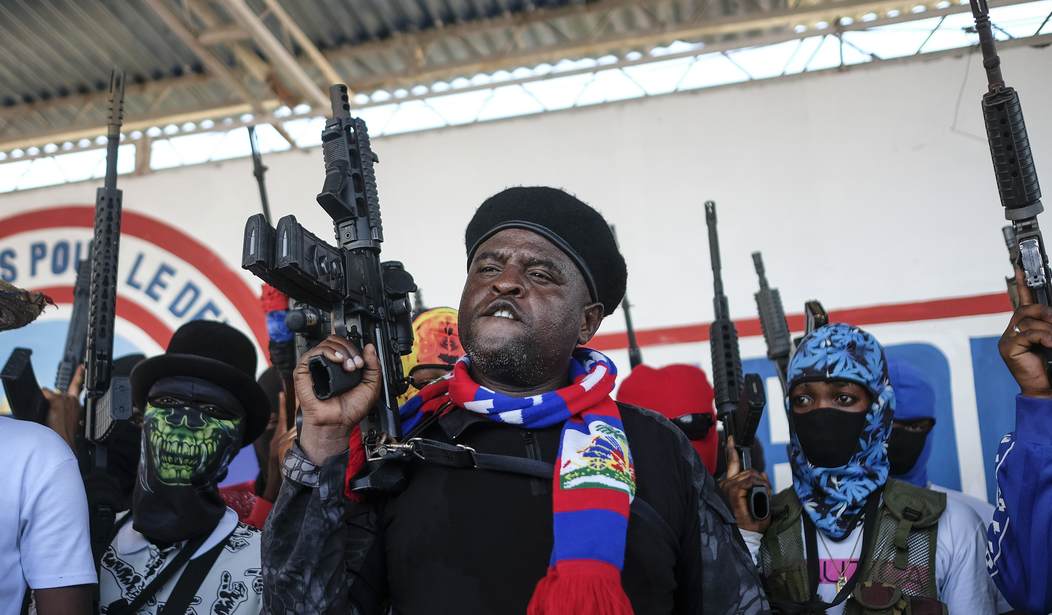It has been nearly a month since Haitian Prime Minister Ariel Henry resigned under pressure from street gangs and ultimately from the United States. Since then, leaders have been putting together a plan for a transitional government. Yesterday an agreement was reached but there is likely a long road ahead to making this work.
A nine-member ruling council, made up of seven voting members and two non-voting observers, was named by a cross-section of political parties and civil society organizations whose leaders also signed the final document over the weekend along with the council members...
Members give themselves a considerable amount of power over the incoming government, including the authority to fire the next prime minister— usually the responsibility of an elected parliament — and to name people to a number of newly created agencies, including a national-security commission.
The final documents still have to be signed off by the former PM and then the new members of the council can be sworn in. The exact timing is unknown at this point. As for what the council will do, the first job is to appoint a new Prime Minister. The new documents spells out some of the qualities they are looking for.
The person needs to have been born in Haiti, have residence in the country and commit to residing there throughout the mandate. In addition to having a good knowledge of public administration and high-level managerial experience, the next prime minister needs to have developed “excellent community skills” and “mastered the art of negotiation,” the ordinance says.
It all sounds nice but currently about 80% of the capital is controlled by gangs. How exactly is the new Prime Minster (once selected) going to rule if the gangs still control everything?
The former PM stepped down after making a trip to Kenya where he signed an agreement to have Kenyan police come to Haiti to help deal with the gangs. That agreement was one thing that helped rile up the gangs to oust the PM. They didn't want outsiders coming in to put them in prison. The Kenyan deal is still in place but no one is saying if the police are still coming. A fundraising effort by the US to pay for the police hasn't been making any progress.
The U.N. and the U.S. continue to have a hard time raising money for the security mission to Haiti. A trust fund to finance the deployment of the Multinational Security Support mission, led by Kenya, still only has $10.8 million, far less than the $200 million Kenya is looking for to deploy. “It’s not moving up in any way,” Stéphane Dujarric, spokesman for U.N. Secretary-General António Guterres, said Thursday. “So the results are what we talk about here every day.”
Dujarric said while they’ve seen a number of countries say they’re willing to send police officers and personnel, there are others that have the money and the equipment to also help them, but not stepping up. “The longer this takes, the worse things get, right? And we’ve been cataloging that downward spiral I think very clearly,” he said.
The Biden administration., which has now pledged $300 million for the security force, is also still at odds with skeptical GOP lawmakers over money for the mission. House Foreign Affairs Committee Chairman Michael McCaul and Senate Foreign Relations Committee Ranking Member James Risch have yet to approve an initial $40 million the State Department is requesting. But they aren’t the only ones not willing to write check: Only $45 million has been raised for humanitarian response. The U.N. is seeking more than $600 million.
Meanwhile, the beleaguered National Police are still fighting with the gangs. Yesterday they recovered a hijacked cargo ship.
Police said in the statement Sunday that those responsible for the hijacking were members of two gangs, named the 5 Seconds and the Taliban gang. They said gunmen seized the transport ship Magalie on Thursday as it departed the port of Varreux.
Radio Télé Métronome reported that the gangs kidnapped everyone aboard the ship and stole some 10,000 sacks of rice out of the 60,000 sacks it was carrying...
Also on Sunday, online news site Radiographie reported that the Taliban gang used a front loader to demolish a police station in the Port-au-Prince suburb of Canaan where at least four police officers were killed in a recent attack. The station was no longer operational.
So the country remains a mess and it's not clear how a new PM is going to fix that. What if the gangs immediately decide to call for his resignation as well? It worked last time so what's to stop them from doing it again? Even if the new PM does somehow get things under control what would stop the gangs from continuing to kidnap and terrorize regular people for money?
It seems obvious to me that until the gang problem is dealt with no long term solutions are possible. Maybe this is just as clear to the new council but if so you'd think they'd have a plan for dealing with the problem and so far I'm not hearing one.








Join the conversation as a VIP Member